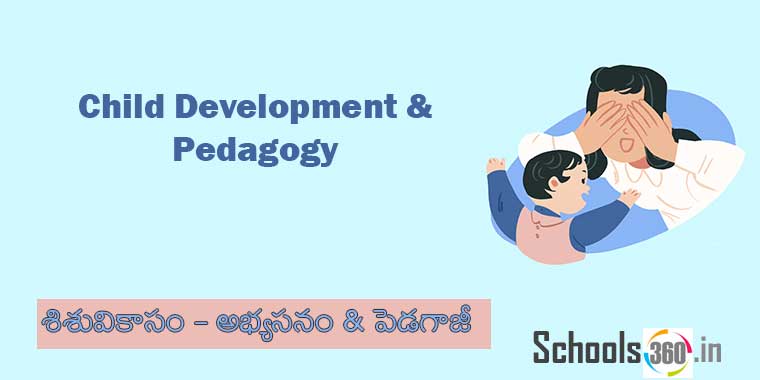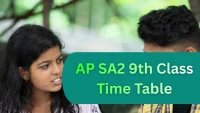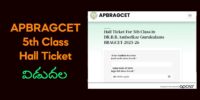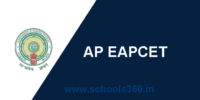TET Paper 1 & 2 SGT, SA Child Development & Pedagogy Study Material, Previous Papers & Model Papers with Solutions PDF: AP TET Study Material for Child Development & Pedagogy English and శిశువికాసం – అభ్యసనం & పెడగాజీ in Telugu have been Provided here.
TET Child Development & Pedagogy Study Material in English
APTET Previous Years Question Paper for Child Development & Pedagogy Model MCQ Question Answers Set Download PDF: Andhra Pradesh TET Previous Question Paper Download link and Model MCQ Question Answers are given here for the upcoming AP TET Exam. Two papers will be conducted on the date of the recruitment test which are Paper I and Paper II. Paper 1 is for Primary Class teachers for Classes 1 to 5 for the teacher eligibility test for Govt schools and Paper 2 is for Upper Primary Class Teacher classes 6 to 8. The last 5 years / 10 years APTET Question papers/ or other solved old question papers will give you idea about the standard of the question paper for the upcoming examination.
చైల్డ్ డెవలప్మెంట్ అండ్ పెడగాగీ (30 మార్కులు) సెక్షన్ – 1 (పెరుగుదల వికాసం)
యూనిట్-1: వికాసము, పెరుగుదల మరియు పరిపక్వత
భావన, స్వభావము, పెరుగుదల మరియు వికాసము మధ్య భేదాలు పెరుగుదల, వికాసము, పరిణతి, పరిపక్వత – భావన, స్వభావము – వికాస నియమాలు – విద్యా సంబంధ అనువర్తనము
+ వికాసాన్ని ప్రభావితం చేసే అంశాలు – భౌతిక, మానసిక, సాంఘిక, ఉద్వేగాత్మక వికాసము
శిశువికాసం – అభ్యసనం & పెడగాజీ తెలుగులో
శిశువికాసంలో ప్రధానంగా శిశు వికాసం, వైయక్తిక భేదాలు, వైఖరులు, అభిరుచులు, ప్రజ్ఞ, మూర్తిమత్వ వికాసం, రక్షక తంత్రాలు
అభ్యసనం అధ్యాయంలో అభ్యసన సిద్ధాంతాలు, ప్రేరణ, స్మృతి, విస్మృతి, అభ్యసన బదలాయింపు అంశాలకు ప్రాధాన్యం ఇవ్వాలి.
పెడగాజీ విభాగంలో ప్రత్యేక అవసరాల పిల్లలు- సహిత విద్య, వైయక్తిక- సామూహిక అభ్యసనం- స్వయం అభ్యసన, బోధనలోని దశలు- అభ్యసన వనరులు- మార్గదర్శకత్వం- మంత్రణం, సీసీఈ, ఎన్సీఎఫ్-2005, ఆర్టీఈ-2009 అంశాలను అధ్యయనం చేయాలి.
చైల్డ్ డెవలప్మెంట్ అండ్ పెడగాగీ (30 మార్కులు)
CHILD DEVELOPMENT AND PEDAGOGY (30 Marks)
| DEVELOPMENT OF CHILD | - Childhood: meaning, multiple childhoods, parenting, child-rearing styles and their impact on the development of child
- Development, Growth & Maturation — Concept & Nature, Differences between Growth and Development
- Principles of development and their educational implication
- Factors influencing Development — Biological, Psychological, Sociological, emotional.
- Dimensions of Development and their interrelationships – Physical & Motor, Cognitive,
- Emotional, Social, Moral, Language relating to Infancy, early Childhood, late Child hood, adolescence.
- Understanding Development — Piaget, Kohlberg, Chomsky, Erikson
- Individual differences — Concept, Types of individual differences (intra & inter) Factors of
- individual differences (heredity & environment).
- Factors influencing individual differences in the areas of Attitudes, Aptitude, interest, intelligence, creativity, Values, level of aspiration, self-concept, achievement.
- Intelligence: Concept and meaning of intelligence, Definitions, Types of intelligence, Theories of a. Intelligence, Measurement of intelligence, IQ, Classification of IQ, Types of Intelligence tests and Uses.
- Aptitude: Concept and meaning of aptitude, Definitions, Characteristics of aptitude, Aptitude tests Measurement of aptitude, Uses of aptitude test. Interest: Concept and meaning of interest, Definitions, Characteristics of interest, Measurement of interests. How to develop interest among students – role of teacher.
- Attitude: Concept and meaning of attitude, Definitions, Characteristics of attitude, Attitude scales, Measurement of attitudes. How to develop positive attitudes among children-role of teacher.
- Creativity: Concept and meaning of creativity, Definitions, Characteristics and stages of creativity, assessment of creativity, The role of a teacher in fostering creativity among the children
- Thinking: Concept, Meaning, Definition, types of thinking, characteristics of thinking, classroom implication.
- Reasoning: Concept, Meaning, Definition, Characteristics, Reasoning process, types of reasoning class room implication.
- Metacognition: Meaning, Concept, Nature, uses, Aspects in metacognition process.
- Development of Personality – Meaning and concept of personality, definitions, characteristics, elements and factors of personality, theories of personality, assessment of personality (Projective and Non-Projective)
- Mental health, adjustment & behavioural problems, conflicts, frustration, tension, anxiety, maladjustment, defence mechanisms.
- Methods and Approaches of Child Development Introspection, Observation, Interview, Case Study
- Experimental method, Action research in Education
- Cross-sectional and Longitudinal Developmental Tasks and Hazards.
|
| UNDERSTANDING LEARNING | - Learning – Meaning, Concept, Definitions, Characteristics of Learning, Types of Learning, determinants of learning, Readiness, Maturity & Motivation, Learning curves.
- Factors of Learning — Personal and Environmental
- Dimensions of Learning — Cognitive, Affective and Psycho-Motor.
- Motivation — its role in learning.
- Concept: Meaning, Definition, Formation of concept, Classification of concept, Types of concept, Concept Development, Role of teacher in conceptual development.
- Perception: Meaning, Definitions, process of perception, Characteristics, Principles of perceptual organization, Influencing factors of perception.
- Memory & Forgetting
- Transfer of Learning
- Approaches to Learning and their applicability. A)Behaviorism (Skinner,Pavlov, Thorndike B)Gestalt (Kohler, Koffka) C): Observational (Bandura) D) Constructivism (Piaget, Vygotsky)
- E)Bruner’s theory of instruction,
- Experiential learning
|
| PEDAGOGICAL CONCERNS | - Teaching and its relationship with learning and learner.
- Learners in Contexts: Situating learner in the socio-political and cultural context
- Children from diverse contexts — Children With Special Needs (CWSN), Inclusive Education.
- Understanding of pedagogic methods — Enquiry based learning, Project based learning, Survey, Observation and Activity based learning, Cooperative and collaborative learning. Individual and Group learning.
- Issues and concerns with respect to organizing learning in class room like Study habits, Self learning and Learning to learn Skills, Learning styles.
- Organizing learning in heterogeneous class room groups
- Paradigms of organizing Learning-Teacher centric, Subject centric and Learner centric.
- Teaching as Planned activity — Elements of Planning
- Phases of Teaching — Pre active, Interactive and Post active
- General and Subject related skills, competencies required in teaching and attributes of good facilitator.
- Learning resources — Self, Home, School, Community, Technology.
- Class room Management: Role of student, teacher, Leadership style of teacher, Creation of on nonthreatening learning environment, Managing behavior problems, Guidance & Counseling, Punishment and its legal implications, Rights of a child, Time Management.
- Distinction between Assessment for Learning & Assessment of Learning
|
| ICT – A | - The Concept of ICT, Tools
- Computer Hardware, Internet, Text Documents, Spread Sheets, Presentations.
- Open Education Resources, Handheld devices, Netiquette (Etiquettes in the use of the Internet)
- ICT – National and State Policies
- ICT-based learning process – Creation of learning Environment, Educational games.
|
| ICT – B | - Exploring for ICT resources (Hardware, Software) evaluating and adoption of ICT resources.
- Pedagogy – Analysis: integrating with ICT and teaching
- Cyber law and protection free software
- Integrating ICT in the Assessment of portfolios, rubrics and data management.
- Preparation of multimedia lessons in subjects and planning
- Activities to be conducted in multimedia lessons, the role of the teacher before, during and after multimedia lessons, social media and their role in learning.
- Online learning courses for teacher’s professional development
- Open education resources, ICT platforms and MOOC.
- Assessment, Continuous Comprehensive Evaluation: Perspective & Practice.
- Understanding teaching learning in the context of NCF, 2005 & Right to Education Act, 2009.
- NEP – 2020 – Introduction, ECCE, Teacher Education.
- New Policies and Programmes implemented by A.P., Government.
|
DEVELOPMENT AND PEDAGOGY (SPECIAL EDUCATION) (30 Marks)
| CHILD DEVELOPMENT | - Nature of Child Development
- Principles and approaches of growth and development
- Theories of learning
- Methods of Child Study
- Individual differences
|
| PEDAGOGY IN SPECIAL EDUCATION | - Characteristics and educational needs of Children with Special Needs
- Types and approaches to assessment of Children with Special Needs
- Curriculum Development and Curricular Adaptations
- Concept of Individual Educational Plan and Individualised Family Services Plan
- Teaching strategies for Children with Special Needs
- Individualised Education Plan (IEP)
|
| EDUCATION COMMISSIONS AND POLICIES (SCHOOL EDUCATION) | - Constitutional provisions on education that reflect National Ideals: Equality, liberty, secularism, and social justice
- National Commissions and Policies: Education Commission (1964), NPE and POA (1986, 1992), National Policy for Persons with Disabilities (2006), National Education Policy 2020.
- National Acts: RCI Act, 1992, PWD Act, 1995, NT Act, 1999, RTE Act (2009 & 2012). RPWD Act2016
- Programmes and Schemes: IEDC (1974, 1983), SSA (2000, 2011), RMSA, 2009, IEDSS, 2009
- International Conventions and Policies: Salamanca Declaration and Framework, 1994; UNCRPD,2006; MDG, 2015; INCHEON strategies
- New trends and strategies in implementing inclusive education for CWSN
|
AP TET Child Development & Pedagogy Previous Question Papers PDF (2011-2014)
Applicants going to appear for the APTET Test can check the APTET Solved Question Papers for Child Development & Pedagogy. These questions are very important to crack the exam which gives more practice. Child Development & Pedagogy gets 30 marks in AP TET Exam. It is Most Important for Paper I & Paper II. Candidates want to work as Teachers for Andhra Pradesh Government needs to prepare well by referring AP TET Previous Year Papers. Also, refer the APTET Exam Pattern 2018 for the better understanding of Papers.
TET Child Development & Pedagogy Model Paper
AP TET Child Development & Pedagogy Paper 1 Question papers- 2016
AP TET Child Development & Pedagogy Question paper Paper 2 – 2016
AP TET Child Development & Pedagogy Paper 1 Question papers- 2014
AP TET Child Development & Pedagogy Question Paper 2 – 2014
AP TET Child Development & Pedagogy Paper 1 Question papers- 2012
AP TET Child Development & Pedagogy Question paper Paper 2 – 2012
AP TET Child Development & Pedagogy Paper 1 Question papers- 2011
AP TET Child Development & Pedagogy Question paper Paper 2 – 2011









